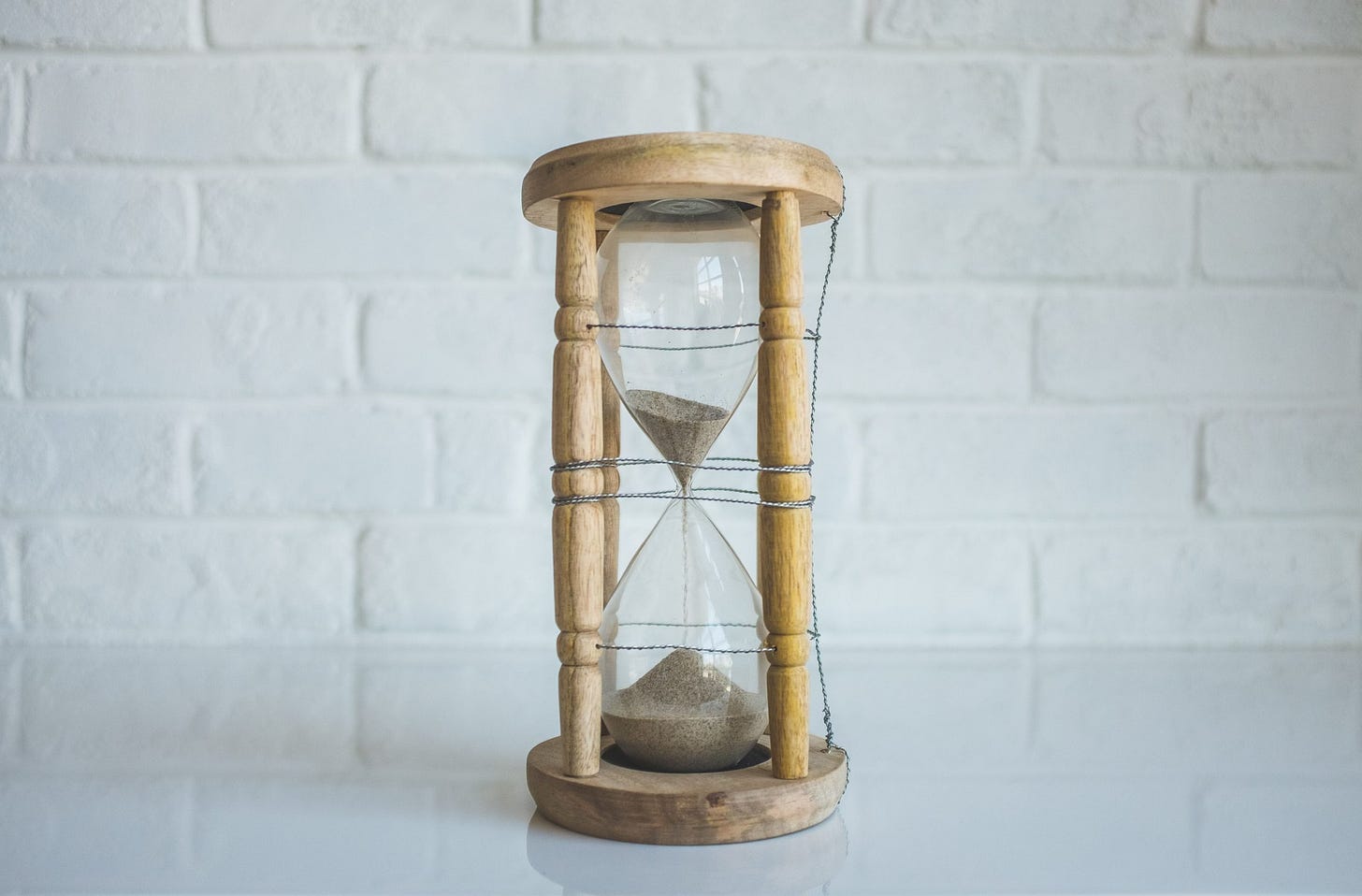Some time ago when I was on a call with my coach, she was commending me for just rolling with things and making decisions rapidly, instead of overthinking and procrastinating.
How is it that in certain areas of our life we have absolutely no problem with making decisions and just ‘rolling with things’ and in other areas, we can totally overthink things?
Sound familiar?
In The Hagakure, a book of Samurai principles, it is suggested that you should make a decision in the space of 7 breaths.
In the words of the ancients, one should make his decisions within the space of seven breaths. Lord Takanobu said, “If dis- crimination is long, it will spoil.” Lord Naoshige said, “When matters are done leisurely, seven out of ten will turn out badly. A warrior is a person who does things quickly.”
When your mind is going hither and thither, discrimination will never be brought to a conclusion. With an intense, fresh and undelaying spirit, one will make his judgments within the space of seven breaths. It is a matter of being determined and having the spirit to break right through to the other side. (source)
7 breaths!
But some decisions require a little more thinking than that, you argue!
Do they really?
When you have to decide between taking on a new job or not, when you need to make a decision to move to the city or a village, when you dither between taking on a project or not, try this little trick:
Take a coin.
Heads is take the job, tail is do not take the job. Throw the coin in the air and when it lands the visible face is your decision. You will immediately know if it is the right one. Because already while the coin is in the air, your brain or gut will root for one. And when it lands on the other you will not be happy.
So deep down, we do know within a very short period of time what the right answer is. It’s just that we have unlearned to trust this Samurai gut feeling, this intuitive, primal knowing that we are all born with.
If you’re not convinced that 7 seconds are enough, let me tell you that research found that it was possible to predict from brain signals which option participants would take already seven seconds before they consciously made their decision. … This suggests that the decision is unconsciously prepared ahead of time but the final decision might still be reversible.
What about the fear?
Whenever we have to make a decision or even when we have chosen one of the options, fear comes along. It likes to throw all sorts of oils on the fire to make little fearful explosions. What if this doesn’t work? What if I hate it? What if I won’t get the money I need? What will people think? What if…
Fear is a useful feeling, as it shows you where your comfort zone is. But there is no excitement and adventure in your comfort zone.
So instead, give fear a chair. Ask it what it is trying to protect you from. And then tell it that you’ve got this. It doesn’t need to protect you.
Try exchanging fear with gratitude. Whenever you are faced with a fearful situation, reframe it. When you go to the job interview and instead of asking questions, the interviewer may say: why don’t you tell us why you’re here.
You may break out in sweats because you were expecting the structure of leading questions.
Or you can reframe the situation and say: oh how lovely, I get to talk about what I want to focus on!
Fear and thoughts (and also people in our life) are like party guests. They only stay as long as they’re being fed.
When you make decisions that lead you towards becoming more you, some guests will leave because they prefer to stay on that comfort zone couch. If you stop feeding the fear, reframe your thoughts and move towards the decision that you know after 7 seconds to be right, things will fall into place.
So next time you need to make a decision, be like Pippi:
“I have never tried that before, so I think I should definitely be able to do that.”
― Pippi Longstocking
and do not spend more than 7 breaths (or a coin flip) on it.




Gewéldige quote hè?!
Good advice for someone who is always doubting! 👌I often find myself struggling to choose between the option I want to do and the option I think of as the one I 'should' do 🙈 and this can spoil both options as it then leads to guilt (as I should 've chosen the other one to be a good ...) or regret (as I really liked the other option more). Any advice there? 😊🙏